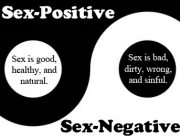Note: The following article is meant to examine the ways in which powerful negative emotions can combine to form certain personality traits and how that can impact sexuality. It is not meant to pathologize or demonize anyone who struggles with any of these difficulties, but merely to illustrate how problematic emotions can create chronic relational and sexual disturbances. As a therapist, I always take a strengths-based approach, and focus on how the individual can resolve their difficult emotions, rather than what is wrong with them.
Previously, I wrote about borderline personality disorder and sexuality. In this post, I will focus on narcissism. In many ways, narcissism is the jigsaw puzzle piece that is the perfect fit for the borderline. There are many reasons for this. The narcissist is often self-preoccupied and unavailable, which does not set off the borderline’s abandonment fears because the relationship feels like it will never get close enough for the borderline to truly be hurt. While the borderline tends to be more anxious/ambivalent in her attachment style, the narcissist is more avoidant, and it is this avoidancy that feels safe to the borderline. For more on attachment styles take a look here.
As in the case of borderline, there are nine distinct criteria in the DSM for narcissistic personality disorder (NPD), including grandiosity, exploitativeness, envy, and lack of empathy towards others. Again, rather than focus on diagnostic criteria, I’m going to take a look at the core emotions that the narcissist struggles with. While the borderline is consumed with fear of abandonment, the narcissist is primarily motivated by a strong sense of internal shame. In this regard, all of the grandiosity, entitlement, and fantasies of power can all be seen as defenses against feeling this core internal shame.
The origins of this shame are often found in the narcissist’s childhood and can involve a complex combination of circumstances. Often, the child can develop narcissistic tendencies if he/she only gets positive validation from his/her external accomplishments. In this way the child learns that the its value only comes from achievement. Harsh, critical and autocratic family dynamics also can lend themselves to narcissism. The child may experience a series of mixed signals from its parents– praise for achievement and devaluation for anything not deemed to be perfect or extraordinary. The child does not develop a strong sense of self, one that is rooted in a core sense of having value. Instead, the child only feels valuable through some form of external success. As a result, the child begins to experience shame due to not being “good enough.”
As mentioned above, narcissists tend towards avoidant attachment. That is because they are so defended against negative emotions such as internalized shame that they seek to avoid any forms of intimacy which can provoke those emotions. Interestingly, as adults, borderlines and narcissists often may find themselves attracted to each other. This is because the narcissist is often distant enough to not provoke the abandonment fears of the borderline, while the narcissist is attracted to the attention and adulation (at least initially) of the borderline. These are the kinds of relationships that turn into the classic distancer-pursuer dynamic, involving a constant push-pull between the two individuals.
Narcissists often can appear to be extremely charming at first. They may have developed a very attractive persona to mask their internal state. Regarding sexuality, they may be attracted to anonymous or purchased sex, because it may feel safer and less intimate, which makes them feel less vulnerable. They may also carry numerous affairs as a means of juggling more than one relationship without putting all their eggs in one basket, and because it may fulfill their need for external validation. Narcissists also carry a lot of rage, especially if their shame is provoked, and due to this anger may struggle with various forms of sexual dysfunctions, such as rapid ejaculation, delayed ejaculation, and erectile dysfunction. Allowing another person to be in control of one’s sexual response may feel too vulnerable and so the narcissist may develop various dysfunctions as an unconscious means of warding off that vulnerability. In this way, sexual dysfunctions may often be seen as a defense against vulnerability and shame. For more on sexuality and shame, click here.
As with the borderline, the narcissist needs to learn to tolerate increasingly higher levels of negative emotions, in this case shame, without reacting to it. By learning to tolerate shame, examine it, challenge it, and find ways to modify it, the narcissist can experience relief from the core negative emotions which drive the narcissism and experience sexual healing as well.


































































































 Prevention: Is Sex Addiction Real?
Prevention: Is Sex Addiction Real? Romper: Emotional Infidelity
Romper: Emotional Infidelity Fatherly: BDSM More Common Than You Think
Fatherly: BDSM More Common Than You Think E! Online: Marrying a Murderer
E! Online: Marrying a Murderer Who Magazine: What is Bisexuality?
Who Magazine: What is Bisexuality? CNN: Why Men May Exaggerate Their Sex Numbers
CNN: Why Men May Exaggerate Their Sex Numbers Women’s Health: 10 Kinky Sex Ideas
Women’s Health: 10 Kinky Sex Ideas NY Post: How Tattoos Can Sabotage Your Love Life
NY Post: How Tattoos Can Sabotage Your Love Life Allure: 8 BDSM Sex Tips to Try If You’re a Total Beginner
Allure: 8 BDSM Sex Tips to Try If You’re a Total Beginner
 Great article in Prevention Magazine about the sex addiction controversy. Check out what I had to say.
Great article in Prevention Magazine about the sex addiction controversy. Check out what I had to say.
 Romper approached me again for another quote, this time about emotional infidelity.
Romper approached me again for another quote, this time about emotional infidelity.
 Interesting piece in Fatherly about BDSM in which I was interviewed.
https://www.fatherly.com/love-money/bdsm-kinky-sex-not-uncommon/
Interesting piece in Fatherly about BDSM in which I was interviewed.
https://www.fatherly.com/love-money/bdsm-kinky-sex-not-uncommon/ E! News picked up my an interview I did with Vice a few years ago about hybristophilia, which is the attraction to criminals. Very interesting story.
E! News picked up my an interview I did with Vice a few years ago about hybristophilia, which is the attraction to criminals. Very interesting story.
 Who is Australia's version of People Magazine. They wanted to know what bisexuality is and I provided some insight.
Who is Australia's version of People Magazine. They wanted to know what bisexuality is and I provided some insight.
 Seems like something doesn't add up on sex surveys-- are men exaggerating their number of partners? Check out what I tell CNN.
Seems like something doesn't add up on sex surveys-- are men exaggerating their number of partners? Check out what I tell CNN.
 Women's Health asked me for some kinky ideas to spice up one's sex life.
Women's Health asked me for some kinky ideas to spice up one's sex life.
 I was interviewed by the NY Post about all the ways in which I've seen bad tattoos sabotage relationships.
I was interviewed by the NY Post about all the ways in which I've seen bad tattoos sabotage relationships.
 Allure Magazine asked me about tips for BDSM beginners.
Allure Magazine asked me about tips for BDSM beginners.
 I answer questions from Salon.com about the infamous porn site PornHub.
I answer questions from Salon.com about the infamous porn site PornHub.
 I tell Cosmo about the personality traits of monogamous individuals.
I tell Cosmo about the personality traits of monogamous individuals.
 I explain to Refinery29 why it's so important to not fake orgasms in a relationship.
I explain to Refinery29 why it's so important to not fake orgasms in a relationship.
 I am interviewed in this fairly nuanced piece on the pros and cons of porn.
I am interviewed in this fairly nuanced piece on the pros and cons of porn.
 I am interviewed by Headspace, one of the best meditation and mindfulness apps available, on how to become more present.
https://www.headspace.com/blog/2017/05/26/enjoy-sex-more/
I am interviewed by Headspace, one of the best meditation and mindfulness apps available, on how to become more present.
https://www.headspace.com/blog/2017/05/26/enjoy-sex-more/ I am interviewed in this intriguing Business Insider article on how often happy couples have sex.
I am interviewed in this intriguing Business Insider article on how often happy couples have sex.
 The Huffington Post in South Africa profiles my work around challenging sex addiction (including my red/yellow/green menu exercise) .
The Huffington Post in South Africa profiles my work around challenging sex addiction (including my red/yellow/green menu exercise) .
 I go deep into the sex toy business with Vice.
I go deep into the sex toy business with Vice.
 I give some insight into this interesting topic.
https://thetab.com/us/2017/03/22/happens-boyfriend-leaves-another-man-63306
I give some insight into this interesting topic.
https://thetab.com/us/2017/03/22/happens-boyfriend-leaves-another-man-63306 I am featured in this outstanding article in UK's Independent on women and virtual reality porn. I thought this was a fairly sharp and nuanced piece.
I am featured in this outstanding article in UK's Independent on women and virtual reality porn. I thought this was a fairly sharp and nuanced piece.
 I give Redbook some pointers on having a 3some for the first time.
I give Redbook some pointers on having a 3some for the first time.

 Playboy sent a journalist to watch Fifty Shades Darker, and then compared the movie with the results from my recent groundbreaking research on BDSM. Great article, enjoy!
Playboy sent a journalist to watch Fifty Shades Darker, and then compared the movie with the results from my recent groundbreaking research on BDSM. Great article, enjoy!
 I am featured in this terrific New York Magazine article, discussing some of the finer points brought up in the earlier article in SELF magazine (see listing below).
I am featured in this terrific New York Magazine article, discussing some of the finer points brought up in the earlier article in SELF magazine (see listing below).
 I am featured in this terrific article in SELF magazine on the nuances of the sex addiction debate.
I am featured in this terrific article in SELF magazine on the nuances of the sex addiction debate.
 Complex asked me to weigh in on this provocative topic.
Complex asked me to weigh in on this provocative topic.

 I weigh in in this great advice column in Thrillist by Elle Stanger.
I weigh in in this great advice column in Thrillist by Elle Stanger.

 Great episode, check it out.
https://soundcloud.com/futureofsex/04-exploring-sexual-fluidity-bicuriousity-for-women-featuring-skirt-club-and-dr-michael-aaron
Great episode, check it out.
https://soundcloud.com/futureofsex/04-exploring-sexual-fluidity-bicuriousity-for-women-featuring-skirt-club-and-dr-michael-aaron I give couples advice on how to deal with differences in preferred sleeping arrangements.
I give couples advice on how to deal with differences in preferred sleeping arrangements.
 Alternet does a great job of reviewing my book. Check out the link below.
Alternet does a great job of reviewing my book. Check out the link below.
 In this episode, we talk about the societal myths of sexuality, including:
In this episode, we talk about the societal myths of sexuality, including:
 I was asked to appear on Australian radio. It was a very fun segment, will post the link when I have it!
I was asked to appear on Australian radio. It was a very fun segment, will post the link when I have it! I appear on the Stereo-Typed podcast to discuss my new book, fantasies, and our shadow self. Click the audio player below and enjoy!
https://www.spreaker.com/user/crazyheart/stereo-typed-8-dancing-with-your-shadow
I appear on the Stereo-Typed podcast to discuss my new book, fantasies, and our shadow self. Click the audio player below and enjoy!
https://www.spreaker.com/user/crazyheart/stereo-typed-8-dancing-with-your-shadow I appear on the Boom Doctors Podcast to discuss my new book Modern Sexuality and my work as a sex therapist. Clink the link below to listen in.
http://theboomdoctors.com/2016/09/21/ep-132-michael-aaron-on-his-work-as-a-sex-therapist-his-new-book-modern-sexuality/
I appear on the Boom Doctors Podcast to discuss my new book Modern Sexuality and my work as a sex therapist. Clink the link below to listen in.
http://theboomdoctors.com/2016/09/21/ep-132-michael-aaron-on-his-work-as-a-sex-therapist-his-new-book-modern-sexuality/ I was asked by Nylon Magazine to weigh in on the subject of porn and what it means about the individual consumer. Pretty good non-pathologizing piece, check it out here:
I was asked by Nylon Magazine to weigh in on the subject of porn and what it means about the individual consumer. Pretty good non-pathologizing piece, check it out here:
 I was interviewed by Vocativ about a new virtual reality series entitled "Virtual Sexology," designed to provide breathing and relaxation exercises in a virtual reality format to help individuals improve sexual functioning. Will something like this prove effective? The jury is out, but check out what I had to say...
I was interviewed by Vocativ about a new virtual reality series entitled "Virtual Sexology," designed to provide breathing and relaxation exercises in a virtual reality format to help individuals improve sexual functioning. Will something like this prove effective? The jury is out, but check out what I had to say...
 I appeared on the nationally broadcasted Fusion Network Hotline show to discuss the GOP platform of porn as a "public health crisis." As part of the discussion I debate Dr. Neil Malamuth on porn and sexual violence. I thought this was a very thorough and productive half hour, which you can watch below:
I appeared on the nationally broadcasted Fusion Network Hotline show to discuss the GOP platform of porn as a "public health crisis." As part of the discussion I debate Dr. Neil Malamuth on porn and sexual violence. I thought this was a very thorough and productive half hour, which you can watch below:
 In this Huffington Post article, I advise couples to use sex menus to spice things up. Check out all the details in the link below.
In this Huffington Post article, I advise couples to use sex menus to spice things up. Check out all the details in the link below.

 I appeared on French national tv channel Canal + on the Emission Antoine tv show, discussing the psychology behind financial domination. I will post a video clip of the interview shortly.
I appeared on French national tv channel Canal + on the Emission Antoine tv show, discussing the psychology behind financial domination. I will post a video clip of the interview shortly. I was interviewed on Huffington Post's Love + Sex Podcast, which I'm told is the most downloaded sex and relationship podcast on iTunes. In this episode, I dispel the wild myths about "sex roulette" parties.
I was interviewed on Huffington Post's Love + Sex Podcast, which I'm told is the most downloaded sex and relationship podcast on iTunes. In this episode, I dispel the wild myths about "sex roulette" parties.
 I was interviewed for an upcoming online sexuality discussion series, the Sexual Reawakening Summit. It features many top sex therapists from around the country and you can access it by using this link:
I was interviewed for an upcoming online sexuality discussion series, the Sexual Reawakening Summit. It features many top sex therapists from around the country and you can access it by using this link:  In the April edition of my Men's Fitness 'Sex Files' Q&A column, I answer questions about anal sex and porn. Hurry and pick up a copy before it's off the stands!
In the April edition of my Men's Fitness 'Sex Files' Q&A column, I answer questions about anal sex and porn. Hurry and pick up a copy before it's off the stands!

 I was asked by Women's Health Magazine to provide some advise on how to incorporate some new positions to spice up one's sex life. With a bunch of pictures and diagrams, I'm sure you'll find something that will intrigue you.
I was asked by Women's Health Magazine to provide some advise on how to incorporate some new positions to spice up one's sex life. With a bunch of pictures and diagrams, I'm sure you'll find something that will intrigue you.
 Looks like Yahoo News picked up the Reuters article on women's fears that their partners expect sexual perfectionism. Check it out.
Looks like Yahoo News picked up the Reuters article on women's fears that their partners expect sexual perfectionism. Check it out.
 My latest interview with Reuters, this time about social pressure on women to be perfect sexually. "Our society is filled with sexual myths and misconceptions, mostly stemming from a combination of our culture's puritanical roots, as well as rampant consumerism, which feeds off individual insecurities to sell unnecessary products," Aaron said.
My latest interview with Reuters, this time about social pressure on women to be perfect sexually. "Our society is filled with sexual myths and misconceptions, mostly stemming from a combination of our culture's puritanical roots, as well as rampant consumerism, which feeds off individual insecurities to sell unnecessary products," Aaron said.
 Head out to the newsstands and grab a copy of the Jan 2016 issue of Men's Fitness Magazine to see the premier of the new monthly "Sex Files" column in which I answer readers' sex questions. In this month's issue I answer a question in which a guy is looking to help his girlfriend enjoy more pleasure when she is having sex on top. Check out the screenshot below to see my response:
Head out to the newsstands and grab a copy of the Jan 2016 issue of Men's Fitness Magazine to see the premier of the new monthly "Sex Files" column in which I answer readers' sex questions. In this month's issue I answer a question in which a guy is looking to help his girlfriend enjoy more pleasure when she is having sex on top. Check out the screenshot below to see my response:

 Love& is a new magazine about relationships and sex. They interviewed me about common things that women may want their guys to improve upon in the bedroom. One of the big ones is touch, as a lot of men are way too rough and don't know how to adjust their touch to what their partner wants. For more on this, and other pointers, check out the article itself below:
Love& is a new magazine about relationships and sex. They interviewed me about common things that women may want their guys to improve upon in the bedroom. One of the big ones is touch, as a lot of men are way too rough and don't know how to adjust their touch to what their partner wants. For more on this, and other pointers, check out the article itself below:
 Market analysts predict that new virtual reality technology will revolutionize the way we experience media, and will specifically boost the porn industry to unprecedented levels. This detailed article covers a lot of ground, addressing both the technology, business and social ramifications of virtual reality porn. I was asked to give my take on the issue and somehow a 20 minute phone conversation was distilled to a brief paragraph at the end of the piece, but nonetheless, it is still a worthwhile read.
Market analysts predict that new virtual reality technology will revolutionize the way we experience media, and will specifically boost the porn industry to unprecedented levels. This detailed article covers a lot of ground, addressing both the technology, business and social ramifications of virtual reality porn. I was asked to give my take on the issue and somehow a 20 minute phone conversation was distilled to a brief paragraph at the end of the piece, but nonetheless, it is still a worthwhile read.
 Does Bill Cosby have a fetish for unconscious women? Who knows? He's not a client and I've never met him, so I cannot say for sure, but this provocative piece in the NY Times tries to get to the bottom of his alleged bizarre behavior. The reporter did a great job dealing with some uncomfortable material, so be sure to click the link below to see what I had to say on this issue:
Does Bill Cosby have a fetish for unconscious women? Who knows? He's not a client and I've never met him, so I cannot say for sure, but this provocative piece in the NY Times tries to get to the bottom of his alleged bizarre behavior. The reporter did a great job dealing with some uncomfortable material, so be sure to click the link below to see what I had to say on this issue:
 I was recently asked by a reporter from Men's Fitness magazine to discuss reasons why a heterosexual man might refrain from having sex with a willing woman. The questions were basically soft balls, seemingly aimed at a younger, more inexperienced, male audience, but hey, I managed to drop a few decent pointers, relating to finding out if the woman is in a relationship, and if so, what kind of relationship she is in before diving in. If you want to take a look and poke around more, you can go directly to the article below. You are going to have to click to page 3 to see my quotes, btw.
I was recently asked by a reporter from Men's Fitness magazine to discuss reasons why a heterosexual man might refrain from having sex with a willing woman. The questions were basically soft balls, seemingly aimed at a younger, more inexperienced, male audience, but hey, I managed to drop a few decent pointers, relating to finding out if the woman is in a relationship, and if so, what kind of relationship she is in before diving in. If you want to take a look and poke around more, you can go directly to the article below. You are going to have to click to page 3 to see my quotes, btw.
 I was recently interviewed for a Men's Health article on sex toys designed for men. They wanted to know my take on these "robotic masturbators" (as they called them) and as always, I tried to take a fair and balanced view of things. I pointed out that they could be used as a way to get better acquainted with one's sexuality (as well as get some much needed relief), but an over-reliance on technology may also limit guys from developing the necessary skills that would help them form romantic relationships.
At any rate, hurry on over to the article here--
I was recently interviewed for a Men's Health article on sex toys designed for men. They wanted to know my take on these "robotic masturbators" (as they called them) and as always, I tried to take a fair and balanced view of things. I pointed out that they could be used as a way to get better acquainted with one's sexuality (as well as get some much needed relief), but an over-reliance on technology may also limit guys from developing the necessary skills that would help them form romantic relationships.
At any rate, hurry on over to the article here--  Go check out a great, and I mean GREAT, absolutely fascinating article in the May issue of Upscale Magazine, entitled "Secret Lovers," in which I am interviewed regarding the hush hush world of the swinger subculture. The writer does a really good job of trying to understand the psychology of folks who practice consensual non-monogamy and I think the piece is very even-handed, with some practical tips for couples who are curious about dipping their toes in the lifestyle. I'll leave you with a quote from one of the swingers profiled in the piece, which I think gives a good feel for the tone and depth of the article-- "I love to see her with two guys and two girls at once. I enjoy submissive women, and there is no sexier submission than to watch my wife please me by pleasing others." If that sounds interesting, then I suggest you head out and grab a copy. It's well worth the read.
Go check out a great, and I mean GREAT, absolutely fascinating article in the May issue of Upscale Magazine, entitled "Secret Lovers," in which I am interviewed regarding the hush hush world of the swinger subculture. The writer does a really good job of trying to understand the psychology of folks who practice consensual non-monogamy and I think the piece is very even-handed, with some practical tips for couples who are curious about dipping their toes in the lifestyle. I'll leave you with a quote from one of the swingers profiled in the piece, which I think gives a good feel for the tone and depth of the article-- "I love to see her with two guys and two girls at once. I enjoy submissive women, and there is no sexier submission than to watch my wife please me by pleasing others." If that sounds interesting, then I suggest you head out and grab a copy. It's well worth the read. I am featured in the Sex Q&A section of Cosmo's April 2014 issue, in which I get asked about BJs, Plan B, sex in hot tubs, and all kinds of other tittilating reader questions. They did a good job of adding all kinds of humor, including a silly picture of tea bags-- need I say more? It's a can't- miss hoot. Go and check it out at news stands now!
I am featured in the Sex Q&A section of Cosmo's April 2014 issue, in which I get asked about BJs, Plan B, sex in hot tubs, and all kinds of other tittilating reader questions. They did a good job of adding all kinds of humor, including a silly picture of tea bags-- need I say more? It's a can't- miss hoot. Go and check it out at news stands now! I just recently did an interview for a cool podcast called
I just recently did an interview for a cool podcast called
Is it possible for a narcissist to be a submissive? Mine fits every single thing you say except for the allowing someone else sexual control. I think it’s just a sex turn on thing but he is hung up on being in chastity. Having his ability to orgasm controlled. Can now only orgasm from being spoken to in a demeaning way. But he is otherwise dominant. Tried to implement a master slave situation because he tops from the bottom as a sub . heterosexual relationship btw.. So thought a master slave where he has no control but no. Immediately failed to comply with all requirements by changing them or avoiding them or doing them I a sneaky way.
I dont think it’s possible for a narc to sub or serve. If they pretend to it’s just for sex play of some sort. Attention. Because for something supposedly for me? Spend wayyyy more time focused on him. His needs his orgasm how long he’s locked what hurts how it hurts. Am I wrong? .
I’ve been involved in a long distance relationship with a male (submissive) narcissist for 6 years. He enjoys being sexually demeaned, edging, and placing me in a Femdom role. However, if he has to go longer than he wishes without a release, he resorts to his other “supply ” to take care of his needs. Yes, through the years I’ve discovered he has numerous women willing to have phone sex with him to meet HIS needs. He also maintains a profile on a dating website which is where he finds a constant “supply”. He says it’s all about “serving ” me and making ME happy, but in fact, quite the opposite is happening . He also has a serious porn addiction, as well as a problem with commitment . Oh, and lest I forget the ongoing roller coaster of passive aggressive behavior ? It’s almost a relief when I get the silent treatment…at least I know I’m going to be left alone for a while. I do not trust him and I’m trying to do “no contact” but it is very difficult. I love him and I know he struggles with a great deal of emotion internally, likely stemming from childhood. However, the emotional abuse has left my self esteem at the lowest point in my life. I struggle everyday with breaking away and praying I find the strength and courage to let it go some day soon. Does anyone know of support groups ? It’s embarrassing, but I need help .
@ Dawn:
I also made the observation that my narcissistic female partner couldn’t really let go. In bed she preferred the passive part, though it wasn’t really submissive – she always seemed to be eager to be in control of her sexual arousal, and I never witnessed her orgasm, no matter by which means, though she claimed to have had them, and later on I’m sure she frequently faked it. On the other hand, she was very focussed on my orgasm, which uneased me, as I preferred to just enjoy what’s going on without aiming for something that will come eventually anyway.
It was a very peculiar constellation where she gave the appearance of being submissive and giving in to my wishes, but at the same she was eagerly trying to control my arousal and to give some kind of performance. She never really let go, she never really gave me the assurance to let go, and I think, she didn’t do it for sexual fulfillment, neither for hers nor for mine, but for control of my person and to nourish her grandiose image by giving herself the impression to be great in bed and being able to make me climax.
So, I think that narcissists cannot really be submissive nor dominant, as both would require to closely interact with another person. They can probably dominate others by treating them like objects, but not in the sense of feeling their desires and realizing them, and I imagine that narcissists have utmost problems with being submissive, which they could only achieve by completely shutting down and retreating to their fantasy world, which again would counteract the interpersonal relation. I guess for a narcissist it’s not me and them interacting, but it’s me and an object in a different position.
Can I find out whether me being raped would help people come to the conclusion that I am narcissistic? I am female by the way and I was raped twice which was never dealt with correctly. A counsellor feels this is closely akin to mental torture, whereas a hospital consultant in conjunction with a GP feel I am narcissistic. What’s the difference?
I was 19 naive 19 he was 32 a truck driver. I worked at trucks top he always came in store funny, charming, my 19 year old self had no interest in him…my first impression….ewwwwww hes old!! This went on for months. I was dating a guy good looking in the air force. Young love. Turns out he had gotten another girl pregnant. Long story short. He left….heart broken,
First 3 1/2 years of our marriage my husband had cheated, lied,been physically and emotionally abusive and is very vindictive but when gets called out on it he always acts as if he has no idea what I’m talking about, he had cheated so much that I finally let him bring women to our bedroom. I love him that much but… After A couple of years of me doing everything I possibly could do to make him happy, And worshipping the ground he walked on, he was still always so negative and mean, we could never have a conversation without him saying some kind of comment about how he knows I lied… but I never had about anything… or him acting like he is so perfect to everyone but behind closed doors it’s a different story. He would accuse me of cheating and lying so much that I would get so frustrated I couldn’t even speak straight, and it would look like I’m lying, and the he would play off of that. He makes me physically go crazy sometimes because when we are arguing he will say I didn’t do that or I didn’t say that, and I would start actually believing maybe he didn’t. He moves thing from right under my nose (like everyday objects) and then I can’t find it where I left and then I can’t find it so all… He will follow me room to room trying to continue arguments band if I just shut down and not say anything he tried to provoke me at exterme levels, once said he was going to have his mistress whoop me, calls me horrific names and even goes to the extreme and says that if I call the cops on him , he will make sure that the cops find the drugs he hid somewhere in the house and my kids will be taken from me. He will send messages during the day while he is at work saying we need to talk and then he won’t answer his phone except for one text and say all it says is I’m just upset … like I did something wrong. then when he gets home from work he acts like nothing happen or he was just joking. Finally I had enough, left and took the kids for a while …Fast forward to now.. I moved back as of course he charmed me into coming back.. the cheating has stopped and the physical abuse has stopped, and he does apologize sometimes ( cause he never did before) but he constantly accuses me of the most ridiculous things, accuses me of cheating, I can’t even go to the store without having the feeling of getting in trouble if I take to long.. He always says sly comments to provoke a fight, and even if I have proof, that he is wrongly accusing me, he won’t look at it, it’s like he just wants to fight for the hell of it. Then after a huge all day long fight when it’s bedtime… he wants to act like it never happened.. what do I do?